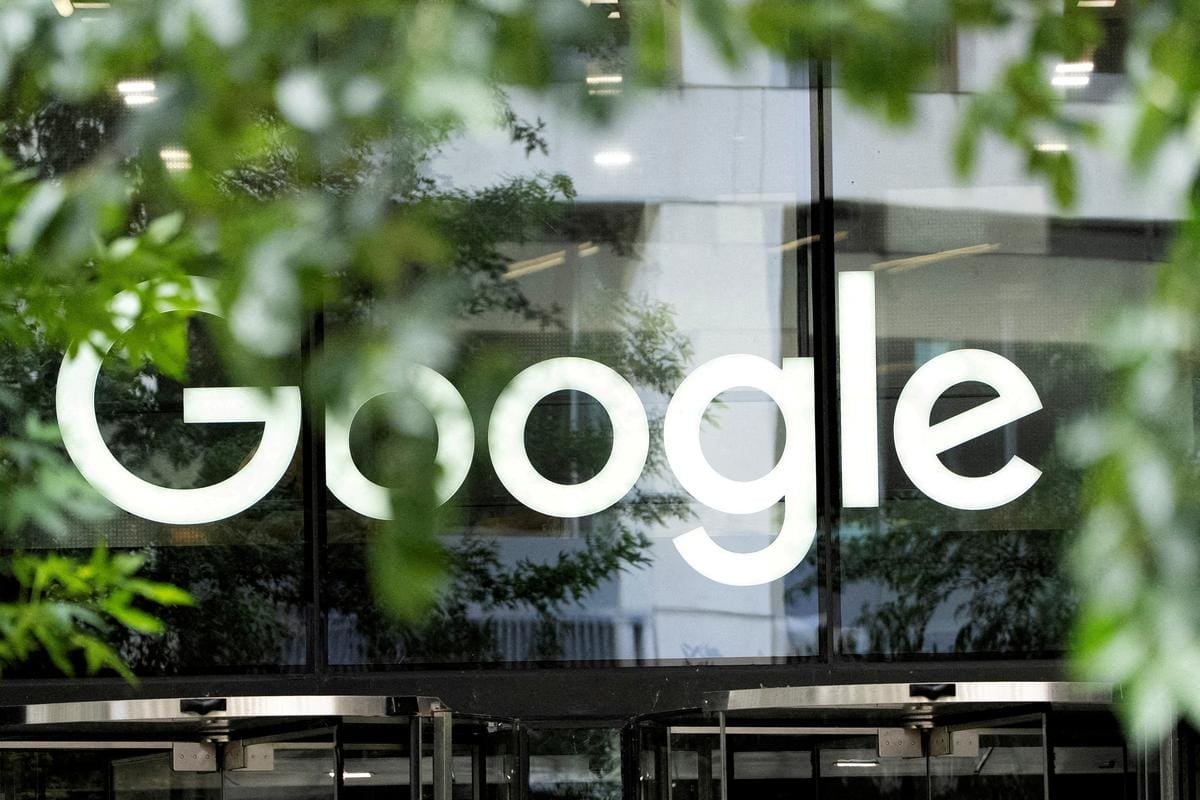
The European Commission in Brussels where the €2.95 billion Google adtech fine was announced.
Role and historical context Google EU fine
Google’s dominance in the digital economy has long been a concern for the European Union and other regulators. But on September 5, 2025, the European Union imposed a record fine of 2.95 billion euros (about $3.45 billion) on Google, a subsidiary of US tech giant Alphabet, for unfair practices in its advertising technology (adtech) business. This fine is the fourth major fine imposed by the EU against Google in the past decade. It also reflects the ongoing conflict between the company and European regulators. The European Commission said in its decision that Google had abused its dominant market position since 2014 to prioritize its online display advertising services, causing harm to competitors and online publishers, but this action has also increased international trade tensions. And US President Donald Trump has threatened retaliation, calling it unfair and discriminatory.
Previous EU fines against Google
In 2017, authorities fined Google 2.42 billion euros for unfair practices in its shopping service, and the European Court upheld this decision. In 2018, regulators imposed a fine of 4.3 billion euros for restrictive contracts in the Android mobile operating system, which was later reduced to $4.1 billion. And 2019, authorities imposed a fine of 1.49 billion euros on Google for illegally restricting advertising competitors. These three cases, authorities have fined Google a total of more than 8 billion euros. hich are 2 advertising technology (Adtech) businesses and Google’s role. Also what is advertising technology. And also advertising technology () refers to the software and tools used for digital advertising. Which facilitates advertising purchase, sale, delivery and measurement. Also it includes ad exchanges (DSP), supply-side platforms (SSP) and ad servers.
Allegations by the European Commission
Self-discrimination that Google favoured its own online display technology services which strengthened the central role of its ad exchange AdX High fees that Google was able to charge higher fees for its service which harmed competitors and online publishers Conflicts of interest that Google played multiple roles in the adtech supply chain which created a conflict of interest and it exploited this conflict Major EU antitrust cases against Google which resulted in fines Year Amount of fines
2017 2.42 billion euros Unfair practices in shopping services 2018 4.3 billion euros Restrictive practices in Android OS
EU competition policy on Google EU fine
The EU competition policy aims to ensure fair competition in the market and protect the interests of consumers. But this policy is based on Articles 101 and 102 of the EU treaties, which prohibit cartels and monopoly abuse respectively. Also, in Google’s case, a violation of Article 102 was found, which relates to the abuse of a dominant market position. At the same time, the proceedings of the European Commission began after a complaint by the European Publishers Council, which objected to Google’s practices. Which shows that the European Union wants to protect not only the interests of consumers, but also small and medium businesses from the dominance of big tech companies.
Google’s official statement
Google has strongly criticized the decision of the European Commission and announced that it will appeal against the decision. But the company’s head of global regulatory affairs, Lee-Ann Mulholland, said that the European Commission’s decision about our adtech services is wrong and we will appeal against it. It imposes an unfair penalty and such changes are needed. But which will harm thousands of European businesses because it will make it harder for them to earn money. And there is nothing anti-competitive in providing services for ad buyers and sellers. And there are more options than ever for our services.
Google’s legal appeal strategy
Google has appealed against previous EU fines, with some success. In the 2018 Android case, the EU’s General Court reduced the fine from 4.3 billion euros to $4.1 billion but upheld the Commission’s key factual findings. Google’s legal strategy typically involves challenging the factual findings of whether it actually has a dominant market position, challenging the legal interpretation of whether its practices actually restricted competition, and calling for the fine to be reduced as disproportionate.
International reactions and political impact
US President Donald Trump has strongly criticized the EU’s decision and threatened retaliation. Trump said in a post on the social media platform Truth Social that the action is unfair and discriminatory and later told reporters that he would talk directly to the EU on the matter. Trump also warned that we cannot let this happen to unprecedented American talent. And if this happens So I will be forced to initiate Section 301 proceedings to cancel the unfair fines being imposed on these US companies. Also, Section 301 of the Trade Act of 1974 allows the United States to punish foreign countries that act unfairly or unreasonably or impose burdens on US commerce.
Impact on other countries including India
This decision of the EU against Google is likely to impact the global digital regulatory landscape. But countries like India, where Android powers more than 95% of smartphones, are learning from the EU’s approach and considering similar regulatory measures. Also in India, the Competition Commission of India has imposed a fine of ₹936.44 crore (about $112 million) in a case against Google. And which was later reduced to ₹216.69 crores (about $26 million) by the National Company Law Appellate Tribunal (NCLAT). Also, the Supreme Court of India has admitted the case for hearing in November 2025.
Impact on consumers and businesses Google EU fine
The EU decision could have a significant impact on consumers and businesses. Also for consumers: If developers can use cheaper payment systems, they can pass some savings to users. And more transparency and restrictions on data use can increase privacy and fairness in app rankings and recommendations. Also for businesses, smaller publishers and app developers may benefit from Google’s less stringent policies, giving them more revenue opportunities. And for smartphone manufacturers: If the Supreme Court upholds the CCI’s original remedies, OEMs may get more leeway to pre-install competing services or experiment with alternative Android versions without losing access to the Play Store. .
The future of the digital advertising market
The EU decision is likely to shape the future of the digital advertising market, which is worth €120 billion. Corey Crider, a senior fellow at the Future of Tech Institute, argued that only a breakup could fix Google’s monopoly and unlock this market for European business. But Google is also due to face trial in the United States on September 22, 2025, where a judge ruled that the company has an illegal monopoly in online advertising technology. And this shows that Google’s advertising technology business is now facing a challenge on multiple fronts.
Conclusion: Google EU fine
The $3.45 billion fine imposed on Google by the EU represents a turning point in the global digital economy. But it not only raises questions about Google’s business practices. But also highlights the growing tension between national sovereignty and digital regulation. And in the future we are likely to see more stringent regulation. Also Especially with the rise of artificial intelligence (AI), where Google’s dominance has the potential to increase further. And Angela Mills Wade, executive director of the European Publishers Council, has warned that a fine will not fix Google’s adtech abuses and stressed the need for strong enforcement. Google’s appeal and potential legal battle could last for years. But one thing is clear. The era of digital regulation is here, and big tech companies will have to make significant changes to their business practices. This decision by the EU will not only affect Europe.






